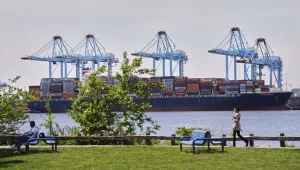In recent op-eds and blog-posts I have argued that prospective trade agreements like the TPP (the Trans Pacific Partnership) would be economically beneficial for reasons similar to past trade agreements and that they would have geopolitical benefits too. I have also opposed adding currency manipulation to the trade negotiations.
I am far from alone. Such support for giving the White House Trade Promotion Authority (TPA) is shared by most economists, including 14 former chairs of the president’s Council of Economic Advisers. But we supporters have not sufficiently responded to the most common arguments of the critics of the TPA process: a perceived abandonment of democracy and transparency.
Despite what one reads, I see no such abandonment, relative to the way that trade negotiations have been pursued by the United States in the past or relative to the way that they are pursued by other countries. Regarding democracy: under Trade Promotion Authority the Congress would vote on the final agreement that the executive branch has negotiated (thumbs up or thumbs down). Regarding transparency: the details of TPP or TTIP that are unknown are details that have not yet been concluded in the international negotiations.
The negotiations could not proceed if Congress were intimately involved every step of the way. That is why it has been done this way in the past. There is nothing different this time around (unless it is the extra degree of exposure that draft texts have received).
It is true that these trade negotiations include more emphasis than many in the past on issues of labor and environment, on the one hand, and intellectual property rights and investor-state dispute settlement on the other hand. And it is true that, to get it right, the details of these issues need fine calibration. But here is the point that everyone seems to have missed, in my view: even if it were somehow logistically possible for international negotiations to proceed while the US Congress were more intimately involved along the way, the outcome would be far more likely to get the details wrong -- with big giveaways to special interests – than under the usual procedure of delegating the detailed negotiations to the White House. I know that no commentator is ever supposed to say that any political leader can be trusted. But I do trust President Obama on this, far more than I trust Congress..
Frankel, Jeffrey. “Answering the TPA Critics Head-On.” June 17, 2015




